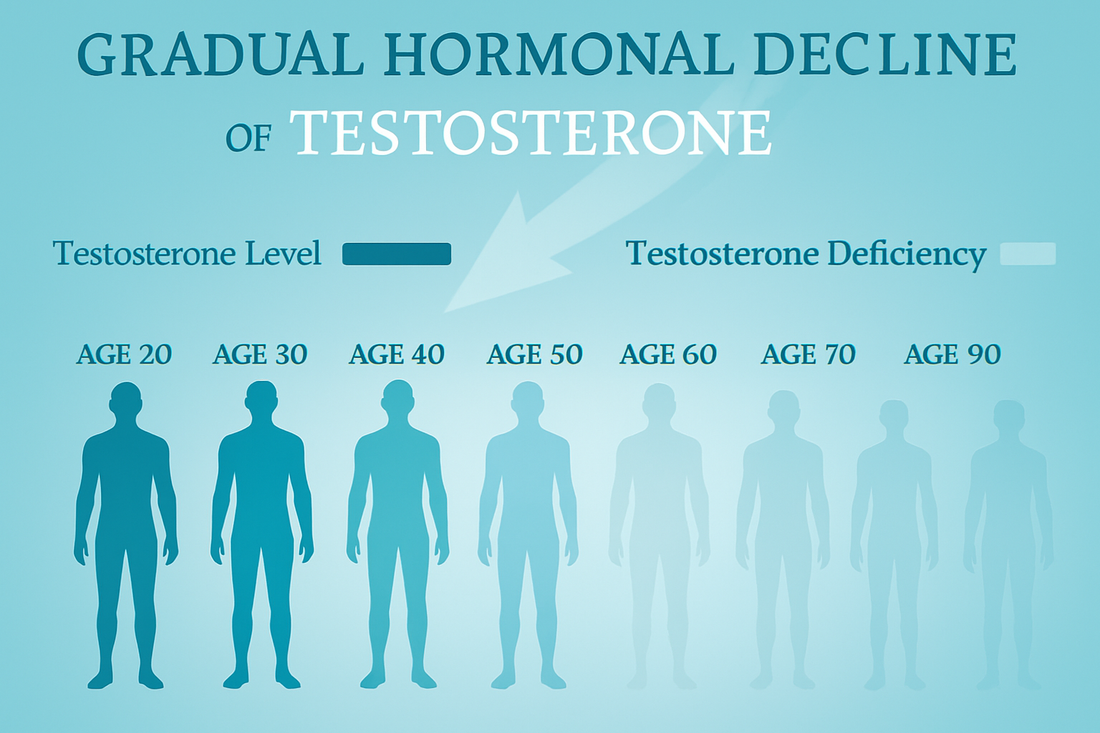
Why We Test for "Low T" (Testosterone): Because Energy, Drive & Vitality Shouldn’t Just Fade with Age
By Bryce WyldeYou know your husband. You see it when he’s off and more tired than usual, less motivated, maybe quicker to snap or slow to recover. You might wonder if it’s just stress… or aging. But here’s what you may not know:
It could be his testosterone aka "Low T". And chances are, no one’s ever tested it... at least not properly.
At HUSBAND, we include Total Testosterone in every lab kit because it’s one of the most critical markers for how a man shows up—for you, for your family, and for himself.
What Is Total Testosterone?
Total testosterone is the full picture of a man’s circulating testosterone—both the kind that’s “free” (and active) and the kind bound to proteins in his blood. It gives us the foundational view of his hormonal health.
Why does that matter?
Because testosterone affects:
-
Energy and stamina
-
Muscle and fat distribution
-
Sexual desire and function
-
Mood, motivation, and cognitive sharpness
| It’s not just about libido—it’s about the kind of man he wants to be, and the man you remember. |
Why It Matters After 40
Most men start losing about 1% of their testosterone each year after 30. But stress, sleep issues, weight gain, and even blood sugar imbalances can accelerate the drop.
Low testosterone can show up as:
-
Mental and physical fatigue
-
Belly fat that won’t budge
-
Frustration, low mood, irritability
-
Declining sex drive or performance
-
A “flat” version of who he used to be
And most physicals don’t catch it—because they either don’t test it at all, or they miss the nuanced markers that actually tell the story.
What the Research Shows
-
Low testosterone is associated with greater risk of type 2 diabetes, heart disease, and early mortality in men.
-
Studies show that optimizing testosterone can improve mood, cognitive performance, and strength.
-
Many men with “normal” lab results still have symptoms because total testosterone must be interpreted alongside other labs like Free T and SHBG (which we also include).
In short: low testosterone is common. But it’s not normal. And it’s almost always addressable.
Why It’s in Every HUSBAND Test Kit
We don’t want you guessing. And we don’t want him wondering. Testing total testosterone is a starting point for real solutions—not just symptom management.
We include it because:
-
It guides natural interventions—like lifestyle, nutrients, and exercise
-
It validates what you may already sense is off
-
It gives him a clear read, so he can take action—and feel good doing it
| When you both know the numbers, it’s easier to talk openly, take next steps, and celebrate the progress together. |
What Happens If It’s Low?
We don’t jump to hormone replacement. We start with root causes:
-
Key nutrients like Zinc, Testosurge, DHEA, Tongkat Ali, and Boron
-
Muscle-focused movement and strength training
-
Sleep and cortisol optimization
-
Targeted supplement support (based on his full panel)
You’ll both get clear next steps in your report and consult—so you can support his vitality, not just his labs.
What Experts Say
Dr. Andrew Huberman, PhD, neuroscientist and host of the Huberman Lab Podcast, emphasizes that testosterone is far more than a “sex hormone” and that it’s a critical regulator of energy, motivation, mood, and focus. He explains that even modest declines in testosterone can significantly affect a man’s drive, mental clarity, and physical performance. Huberman strongly encourages men to regularly test their total and free testosterone levels, noting that understanding your hormonal baseline is a powerful tool for optimizing both brain and body. As he puts it: “Testosterone is fundamental to how we move through the world.”

